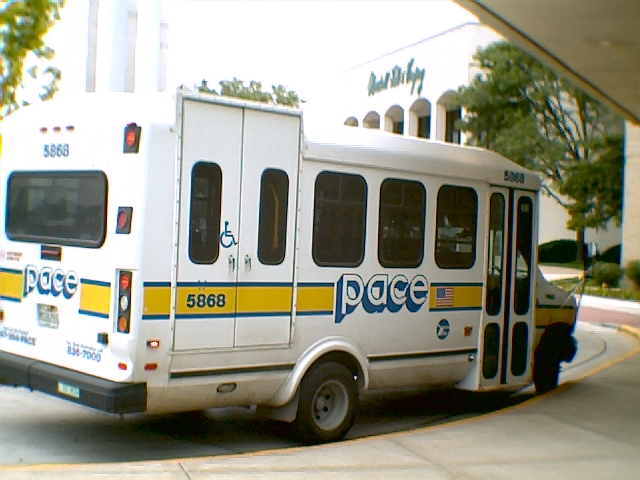Yorktown Pace Bus Ban Demonstrates Public Space Importance
 Yorktown's ban on Pace buses is just yet another reminder that commercial shopping malls, no matter how public they may appear, are still privately-owned and largely subject to the whims of the for-profit corporations that own them.
Yorktown's ban on Pace buses is just yet another reminder that commercial shopping malls, no matter how public they may appear, are still privately-owned and largely subject to the whims of the for-profit corporations that own them.
I have never heard of anyone having been given permission to circulate petitions in a shopping mall, the ownership usually giving the reason that such circulation would interfere with patrons' shopping experiences; yet at the same time, they allow the conduct of survey research by organizations who choose to rent space from them.
The disappearance of public spaces to serve as public forums, and their replacement by private spaces, such as shopping malls, is a serious issue that threatens our democracy. The car culture and poor planning is resulting in the disappearance of public spaces. By the time people leave their cars, they are far into the parking lots of the big box stores on private property and beyond the reach of the public forum.
In addition, through laws such as the Postal Reorganization Act, and the drive to privatize the property of the United States Postal Service, we are loosing other traditional public forums and our ability to meaningfully exercise our constitutional right to engage in free speech--political, religious, and otherwise.
Where is this all leading? It is leading to an environment where those who own the land, or the media, exclusively control the public debate. The private owner of a shopping mall simply has no legal duty to allow speech that does not support their private, commercial interests.
In the case referenced above, the owner of Yorktown Shopping Mall may have acted in what it feels is in its own private interest; but it certainly did not act in the greater public interest. Unfortunately, usually the only effective way to make such corporations act in the public interest is to refuse to patronize them and inform them of your reason for doing so. Of course, this approach doesn't always work.
There are arguments that such corporations SHOULD have a duty to act in the public interest. After all, corporations, which are artificial legal persons and creations of the state, are allowed to incorporate and profit with the assumption that they will act in the public interest; and the State rarely revokes a corporate charter for failing to do so.
California actually has a state law which requires shopping malls to allow certain types of constitutionally protected speech, such a petitioning, which is considered a form of political speech. The legal theory is that public shopping malls are largely responsible for the demise of the traditional main street, and they often receive zoning variances, exceptions, and many other value government subsidies.
We should consider a similar law here in Illinois. We should also pay more attention to zoning, planning, and land use issues which result in unwalkable communities, the disappearance of public spaces, and the demise of traditional public forums. Of course developers will no doubt balk at any such attempt, but protecting competition in our marketplace of ideas is far more important than protecting their pocketbooks.
Thankfully, there are already a few organizations working on related issues, notably including the Project for Public Spaces, Congress for the New Urbanism, the U.S. Green Building Council, and several others. Now we just need Illinois lawmakers to start working on the same.
1 comments:
Post a Comment